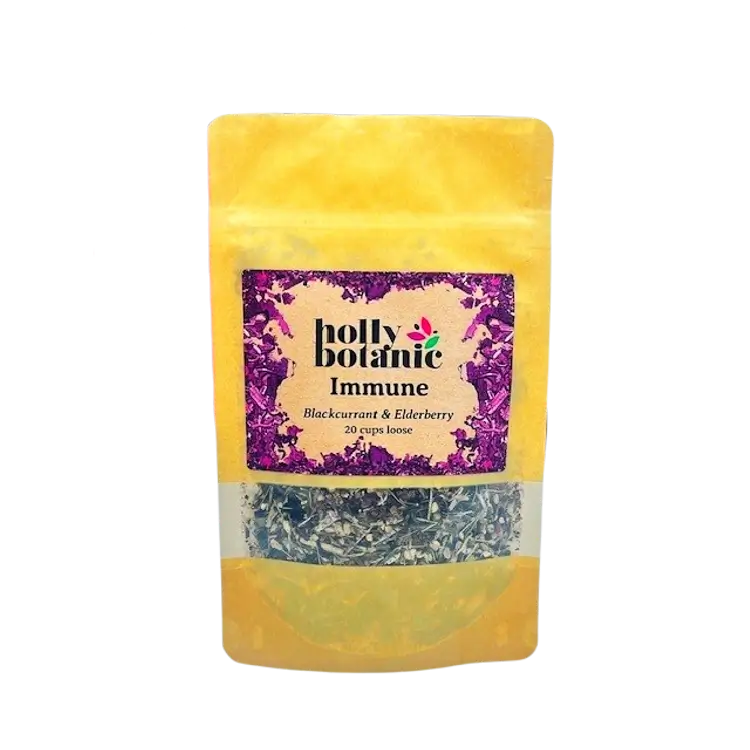This entry was posted on 25th August 2025.
Let’s be honest. For many of us over 45, a truly deep, restorative night’s sleep can start to feel like a distant memory. We go to bed feeling exhausted, only to find our minds racing with the day’s worries or tomorrow’s to-do list. We might wake up at 3 AM for no reason at all, tossing and turning until the alarm clock finally puts us out of our misery.
The next day, we feel it. That familiar brain fog, a shorter fuse, and a general lack of energy that a strong cuppa can’t quite fix. We often put it down to just “getting older.
“But what if it’s more than that? What if this cycle of being “tired but wired” is actively accelerating the aging process? And, more importantly, what if there was a simple, natural way to fight back?
As a nutritional expert, I can share an important tip with you. Understanding the powerful connection between stress, sleep, and a vital mineral that most of us simply don’t get enough of: Magnesium, is an important step in turning this process around. In this guide, we’ll explore how you can use this “relaxation mineral” to help reclaim your sleep, manage stress, and actively fight the aging process from the inside out.
The Real Reason Stress and Poor Sleep Make Us Feel Older
We all know that a bad night’s sleep can make us look and feel tired. But the effects are far more than skin deep. When we’re constantly stressed and sleep-deprived, we’re essentially leaving the body’s accelerator pedal pressed to the floor.
This is driven by a stress hormone called cortisol. During the day, cortisol helps us stay alert. But when stress is chronic, our cortisol levels can remain high into the evening. This is a disaster for sleep, because cortisol is the natural enemy of melatonin, the hormone that tells your body it’s time to rest and repair.
When this hormonal seesaw is stuck with cortisol up and melatonin down, a cascade of age-accelerating events occurs:
- Cellular Repair Grinds to a Halt: The deepest stages of sleep are when your body and brain perform critical maintenance, clearing out toxins and repairing cellular damage. Without this, the damage accumulates, leading to what scientists call “oxidative stress.”
- Inflammation Rises: This state of constant alert fuels chronic, low-grade inflammation—a process now so linked to aging it has its own name: “inflammaging.” This can contribute to everything from aching joints to brain fog.
The result? We don’t just feel older; our bodies are biologically aging faster. Breaking this cycle is one of the most powerful things you can do for your long-term health.
Magnesium: The Body’s Essential “Dimmer Switch”
If cortisol is the bright, glaring light of stress, magnesium is the dimmer switch. This master mineral is involved in hundreds of processes in the body, with a special talent for promoting a state of calm and rest.
Here’s how it works its magic:
- It Calms the Mind: Magnesium is important for the function of GABA, a neurotransmitter that acts like a brake pedal for your brain. It helps to quieten the mental chatter and racing thoughts that so often keep us awake at night.
- It Regulates the Stress Response: Magnesium helps to keep your central stress response system in check, preventing the overproduction of cortisol. A body with sufficient magnesium is simply more resilient and less reactive to stress.
- It Relaxes the Body: Ever felt that tension in your shoulders after a long day sitting at a desk? Magnesium is a natural muscle relaxant, helping to release physical tension and prepare your body for deep rest.
By performing these three crucial jobs, magnesium helps you to step off the stress-sleep accelerator, creating good conditions for your body to rest, repair, and rejuvenate.
The Woods Health Difference: A Tale of Two Magnesiums
Here is a vital piece of information that many people miss: the form of magnesium you take matters immensely. The effectiveness of a supplement depends entirely on how well your body can absorb and use the mineral.
This is where the intelligent, dual-action formula in Woods Health Magnesium 375mg truly shines. Instead of using just one type of magnesium, it cleverly blends two distinct forms to deliver a superior solution.
- Magnesium Citrate: The High-Absorption Hero
The first part of the blend is Magnesium Citrate. Think of this as the fast-acting, highly effective hero of the formula. It is a form of magnesium bound to citric acid, which makes it incredibly easy for your body to absorb.
This high bioavailability means the magnesium gets delivered efficiently to your brain, nervous system, and muscles—exactly where you need it to calm your mind and relax your body for a better night’s sleep.
- Magnesium Oxide: The Potent Partner
The second part of the duo is Magnesium Oxide. Its main advantage is its density—it contains a very high amount of pure magnesium in a small space. This allows the formula to provide the full 375mg dose (100% of your daily reference intake) in a convenient, easy-to-swallow tablet.
Furthermore, Magnesium Oxide has a wonderful secondary benefit: it gently supports bowel regularity. It works by drawing a little water into the bowel, which can help to keep things moving comfortably. For many, supporting digestive harmony is another key part of feeling your best.
By combining the high-absorption hero (Citrate) with the potent partner (Oxide), you get a recommended daily formula that works on many levels—such as calming your system for better sleep and supporting digestive wellness.
The Science Behind the Calm: What the Research Shows
These benefits are not just anecdotal. A wealth of modern scientific research confirms magnesium’s crucial role in sleep and stress management.
- Some research studies have focused specifically on magnesium for insomnia in older adults. The researchers found that supplementation improved the time it took to fall asleep and the total amount of time spent asleep.
- Other studies have explored the link between magnesium and anxiety. The evidence shows that magnesium supplementation has a beneficial effect in reducing feelings of stress and anxiety, highlighting its ability to help regulate our stress hormones.
- Crucially, studies have shown that some forms of magnesium are absorbed far more effectively by the body than others, and this is why Woods Health have selected these carefully for their dual-action blend .
Making Magnesium Your Nightly Ritual
One of the best things about magnesium is how simple it is to make it part of your routine. Taking your supplement about an hour before you plan to go to bed is ideal. Think of it as the first step in winding down for the night—perhaps with a final, caffeine-free cuppa and a good book.
This small, consistent act is a powerful investment in your long-term health. You are actively fighting back against the ageing effects of stress and poor sleep. You are giving your body the essential tool it needs to press the “pause” button, repair itself overnight, and face the next day with renewed energy and a clearer mind.
For those of us who want to stay on top form, with the vitality to enjoy our work, our hobbies, and our families for years to come, mastering our sleep and stress is not a luxury—it’s the foundation of aging well.
It is advisable to consult your GP before taking this on a regular basis if you have any new or pre-existing health conditions.
References
- Abbasi, B., et al. (2012). The effect of magnesium supplementation on primary insomnia in elderly: A double-blind placebo-controlled clinical trial. Journal of Research in Medical Sciences, 17(12), 1161–1169. Link: https://www.ncbi.nlm.nih.gov/pmc/articles/PMC3703169/
- Boyle, N. B., Lawton, C., & Dye, L. (2017). The Effects of Magnesium Supplementation on Subjective Anxiety and Stress—A Systematic Review. Nutrients, 9(5), 429. Link: https://www.ncbi.nlm.nih.gov/pmc/articles/PMC5452159/
- Pardo, M. R., et al. (2021). Bioavailability of magnesium food supplements: A systematic review. Nutrition, 89:111294. Link: https://pubmed.ncbi.nlm.nih.gov/34111673/
- Mah, J., & Pitre, T. (2021). Oral magnesium supplementation for insomnia in older adults: a Systematic Review & Meta-Analysis. BMC Complementary Medicine and Therapies, 21(1), 125. Link: https://bmccomplementmedtherapies.biomedcentral.com/articles/10.1186/s12906-021-03297-z
Publisher: Source link



